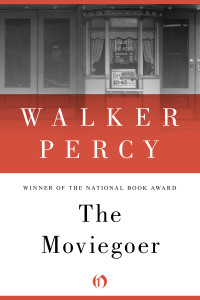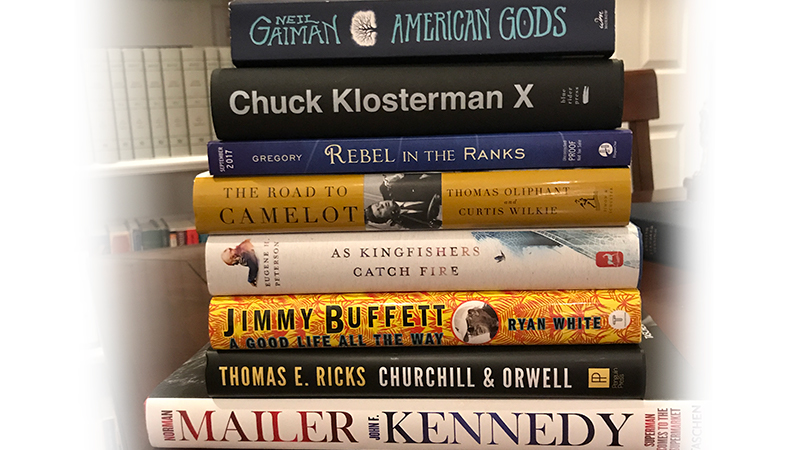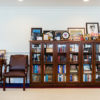 Over at The Atlantic, Andrew Santella writes about his lifelong obsession with Walker Percy’s novel The Moviegoer. Like Santella, I typically re-read this book every year or so. Unlike Santella, I’ve never found this childish or unhealthy, but after reading this essay I can see why, for him, it was.
Over at The Atlantic, Andrew Santella writes about his lifelong obsession with Walker Percy’s novel The Moviegoer. Like Santella, I typically re-read this book every year or so. Unlike Santella, I’ve never found this childish or unhealthy, but after reading this essay I can see why, for him, it was.
Santella writes that his problem was that he identified with Binx Bolling as a kind of role model “for the smart, droll young man I wanted to be. In fact, I was such a mess that I didn’t notice was a mess Binx was.”
Santella says that he modeled his life, perhaps unintentionally, after Bolling, including his flawed and failed perception of women. This would be akin to identifying with the Preacher of Ecclesiastes in the first ten chapters of the Book, and living out one’s life in the pursuit of meaning through wisdom or pleasure or riches.
I love The Moviegoer for all sorts of reasons. It is set in the region I call home. Parts of it take place on the Mississippi Gulf Coast, my home, and the protagonist lives in the Gentilly neighborhood of New Orleans, where I went to seminary. Beyond that, Percy pictures, better than anyone I’ve read, the angst that comes from a sinner alienated from God, and thus from the cosmos, without knowing how and why he’s alienated.
Here’s the line from the book that sticks with me, most persistenly over the years, and rings even more true to me today now that I work, once again, in an arena where so many people’s lives are defined by their ideologies. Percy writes about Binx’s practice of going to the library to read, in turn, conservative and liberal magazines. He feels the jolt of satisfaction every time the liberal magazine zings the conservatives, and then vice-versa. If the book were written today, Percy might well have situated Binx at home on the couch, flipping channels between Fox News and MSNBC.
Binx reflects:
Though I do not know whether I am a liberal or a conservative, I am nevertheless enlivened by the hatred which one bears the other. In fact, this hatred strikes me as one of the few signs of life remaining in the world. This is another thing about the world which is upsideown: all the friendly and likable people seem dead to me; only the haters seem alive.
It seems to me this is a persistent pull for those who’ve lost the sort of purpose that comes only with being found in the cosmos. If there isn’t a sense of mission found in a spiritual conflict in the heavenly places, the only life we find is in being the best team on the field or the most sarcastic argument in a Facebook comment thread. That’s certainly true for me. And it reminds me that I’m always just a gospel away from being Binx Bolling.







